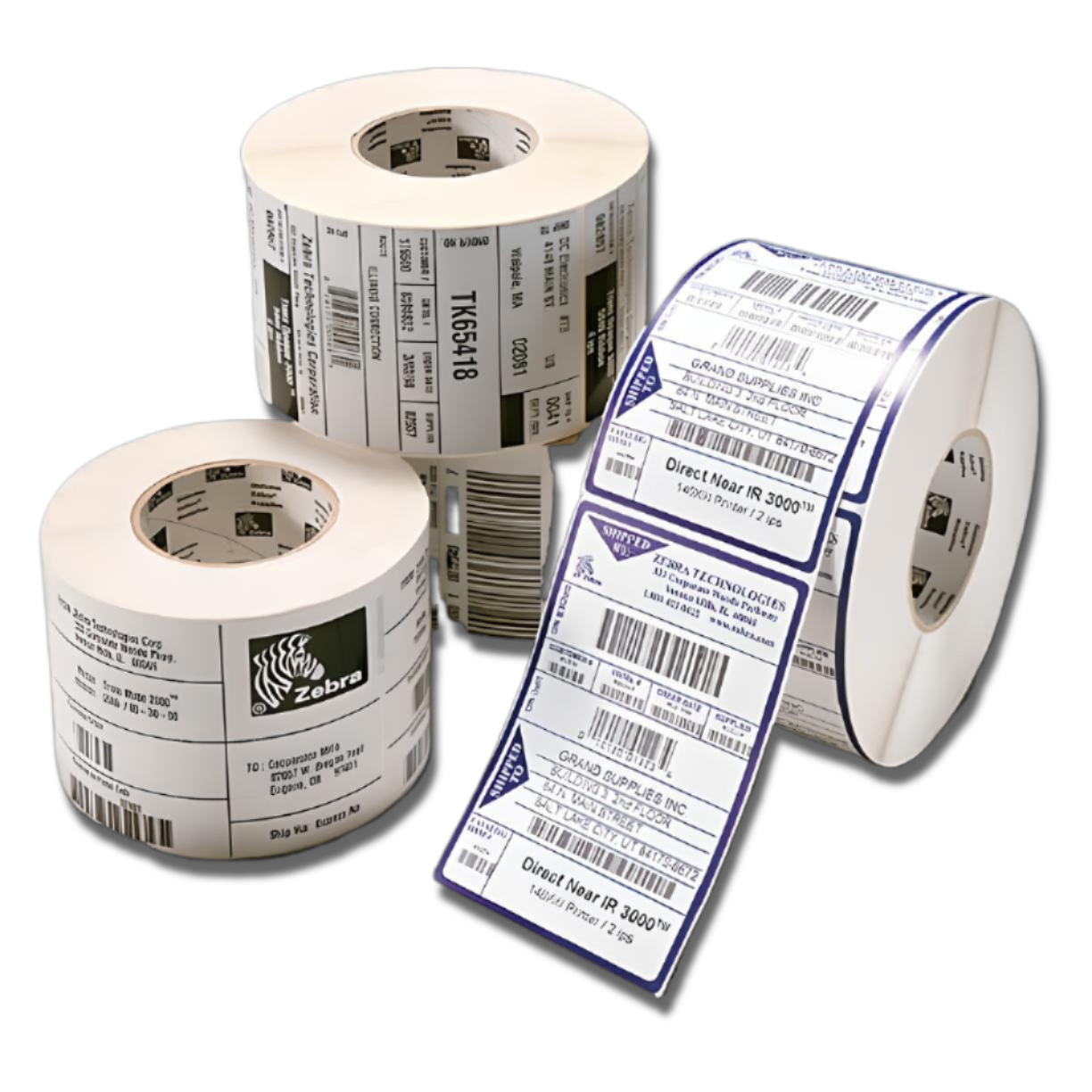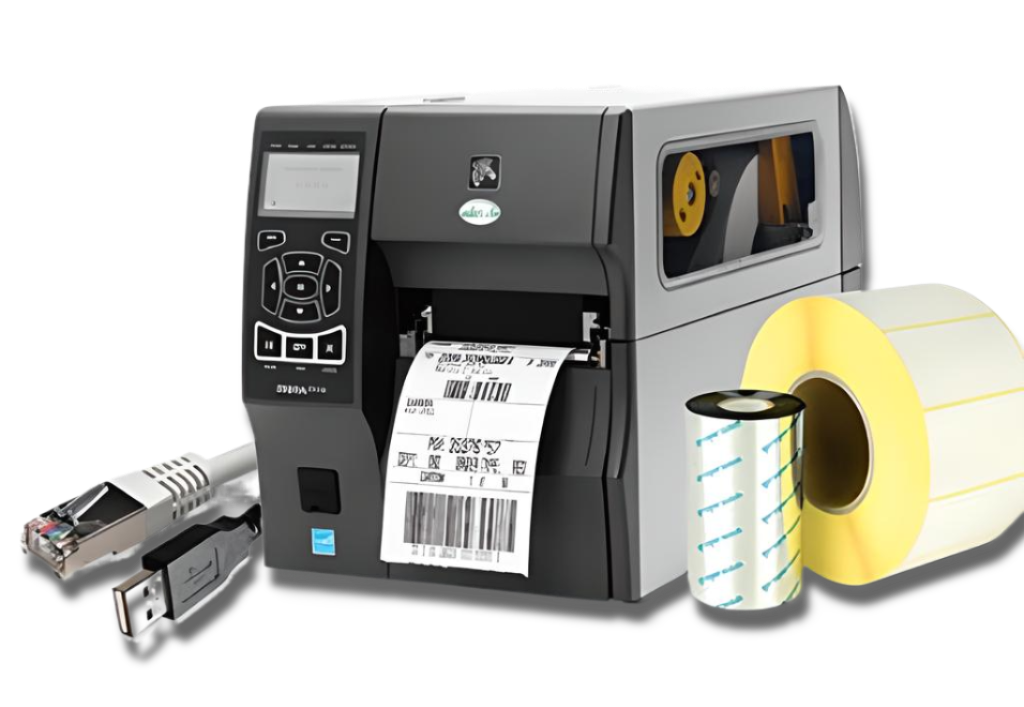
RFID technology is increasingly used in logistics and supply chain management to enhance visibility and distribution efficiency throughout the chain.
When a business expands its manufacturing operations, its supply chain must also grow accordingly. As a result, the processes within the chain become more complex. Limited visibility or data errors can disrupt production, significantly affecting business performance. Consequently, the importance of accuracy at each link in the supply chain becomes essential—and that’s where RFID (Radio Frequency Identification) technology proves its value. In fact, many businesses have adopted RFID as a key solution to ensure efficiency in their logistics and supply chain operations.

RFID in logistics and supply chain management
Proper RFID implementation is a basic requirement for streamlining every operation in the chain—from decision-making to inventory tracking and distribution. Businesses using this technology can be found in sectors such as e-commerce and healthcare.
Modern supply chains open up numerous opportunities for businesses to apply RFID at critical touchpoints. Below, we dive into the details of each supply chain stage and the potential applications of RFID technology.

Seamless information flow across the chain
In today’s volatile markets, supply chains are only effective when supported by consistent information flows. Beyond accuracy and real-time updates, this data must also be timely for suppliers, warehouses, and shippers to maintain smooth operations in all environments.
RFID tags enable effective integration by rapidly capturing essential details about the materials and products being moved. These systems then seamlessly transmit the data to relevant stakeholders across the supply chain.
Operations and Procurement
Daily supply chain operations are critical to determining overall efficiency—directly impacting a business’s bottom line. However, monitoring these operations is no simple task. RFID helps overcome this challenge by offering real-time insights into daily workflows. Businesses can pinpoint bottlenecks or delays and respond with timely, accurate solutions.
In the procurement stage, RFID tracks the flow of raw and semi-finished materials. With RFID-enabled solutions, identifying the status of shipments becomes easier. This application also streamlines warehouse management processes by minimizing delays in receiving goods.
RFID also plays a key role in maximizing warehouse storage efficiency. Data gathered from RFID systems ensures items are stored and retrieved in the most effective way, reducing inventory loss. Real-time data enhances picking and inventory accuracy—essential for avoiding waste due to defective or misplaced products.
Distribution and Logistics
As products move from their origin to final destinations, RFID brings substantial advantages to distribution. This stage is often plagued by unexpected issues that can slow down or derail the process. RFID helps mitigate these problems effectively.

Take weather and road conditions, for instance—factors that could delay or disrupt shipments. With RFID, businesses can monitor these in real-time and implement corrective measures to ensure on-time deliveries.
In warehouses and distribution centers, RFID solutions significantly enhance efficiency and automation in inventory and logistics management. They offer cost-saving opportunities and increase supply chain visibility—improving accuracy and competitive advantage.
From a logistics perspective, RFID is applied in nearly every phase:
- Vehicles in warehouses are tagged to track movement and location.
- RFID tags are widely used to locate goods and monitor their movement.
- During outbound processes, RFID enables encoding of pallets with detailed order, delivery, and recipient information.
- Modern logistics increasingly supports retail commerce. RFID-tagged products allow for precise picking and packing, with optimized order confirmation, preparation, and pre-shipment inventory checks.
Did you know?
Warehouse planning and management in the supply chain have become more complex, involving storage, order status tracking, sorting, loading/unloading, and customer service. By adopting RFID in warehouse management, businesses can improve their control and operational efficiency.
Benefits of RFID in logistics and supply chain

Enhanced end-to-end visibility:
RFID allows businesses to track workflows and gather essential data related to production equipment, inventory, asset management, and operational processes.
The integration of RFID into various supply chain tasks simplifies and automates operations—reducing waste and human error.
This RFID-generated data enables quicker, more informed decision-making, improving supply chain management.
Increased productivity:
RFID reduces the time spent locating goods by using radio waves to identify and track product positions. This time savings translates to reduced labor costs and improved overall productivity for manufacturers.
Real-time inventory tracking:
One of RFID’s biggest benefits is the ability to cut costs through accurate real-time inventory tracking.
With RFID, businesses know exactly how much stock they have—avoiding overstock and ensuring shelf availability.
RFID-tagged goods allow manufacturers to increase counting speed from 200 to over 12,000 items per hour. They can also check product sales status on shelves in minutes rather than weeks.
Higher accuracy:
Incorporating RFID into warehouse systems can improve picking and shipping accuracy by up to 80%, saving significant costs by minimizing packaging and shipping errors.
Reduced loss and theft:
RFID tagging helps companies monitor inventory in real time, enabling prompt detection and prevention of loss or theft—especially for high-value or hard-to-replace items.
Challenges in applying RFID in logistics and supply chain management
- RFID is an expensive technology: RFID requires costly equipment, whether it's software or hardware.
- Risks of interference from metals and liquids: RFID doesn't always perform well in all environments. Radio waves can be disrupted when passing through metal or liquids, potentially reducing tag readability and system reliability. This means that RFID deployment must be carefully considered in environments such as warehouses storing liquids, metals, or mixed materials.
- Data security and privacy concerns: RFID tags can be read remotely, which raises concerns about unauthorized access and misuse of data. Businesses need to ensure that RFID systems are properly encrypted and protected to avoid information leakage or theft.
- High implementation complexity: Deploying an RFID system requires synchronization of many components, including tags, readers, software systems, and databases. For businesses without experience or adequate infrastructure, this can be a time-consuming and technically demanding process.
- Integration with legacy systems: Many supply chains still use older systems that may not be compatible with RFID. This can require custom integration, further increasing time and cost.
- Environmental limitations: Temperature, humidity, and other environmental factors may impact the performance of RFID systems. Tags and readers must be selected appropriately for each specific use case.









